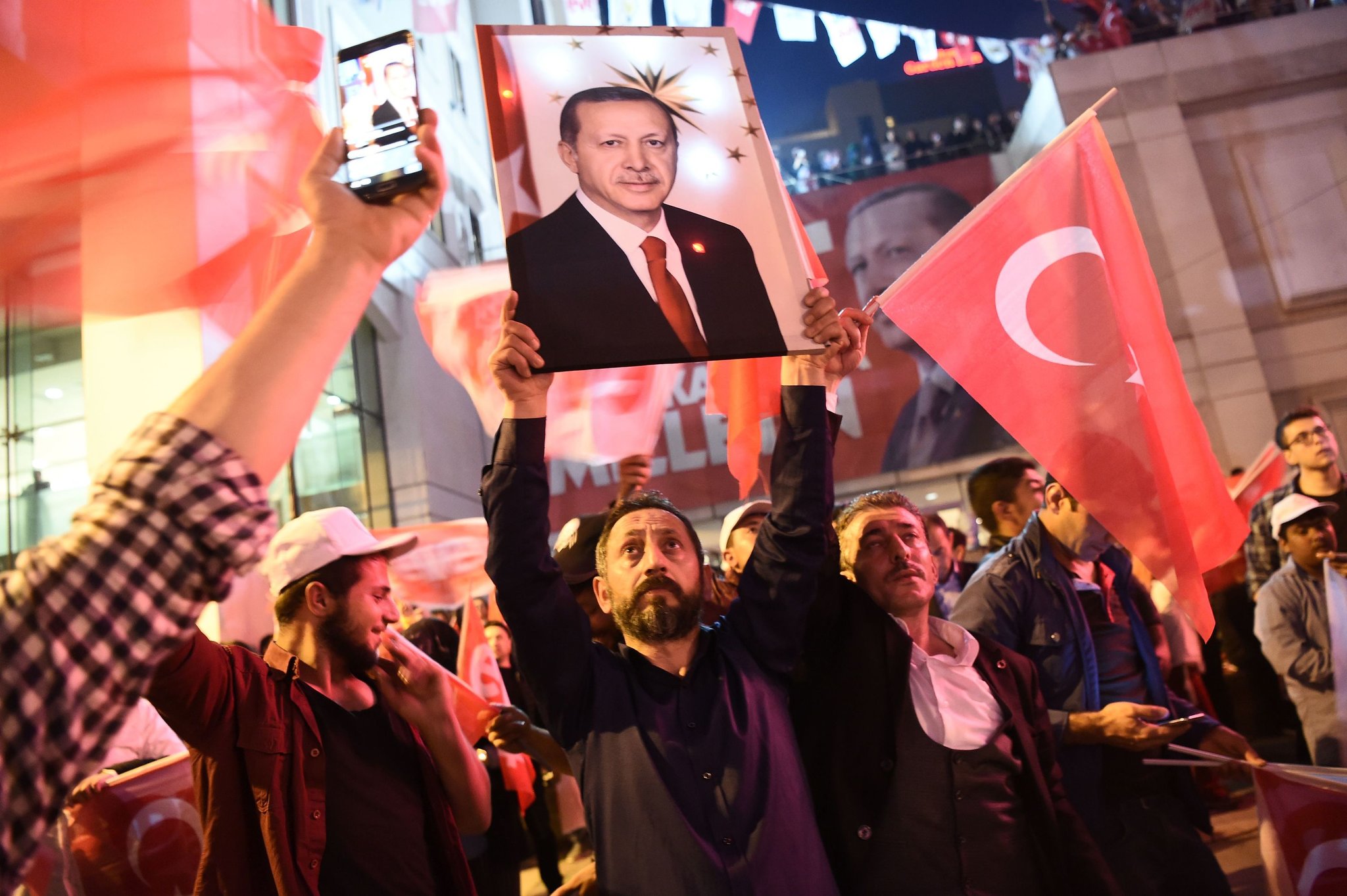- In order to restore peace and stability in the Middle East, friends and allies of the country around the world can count on Ankara’s long-term commitment
The Guardian
Ibrahim Kalin

Turkey held a historic referendum last month, with a record turnout of 85 per cent, in which 51.4 per cent voted in favour of constitutional reform, including the adoption of a presidential system of government. What made the vote exceptional was that, for the first time in Turkey’s modern history, the people, rather than coup plotters, got to decide with which system the country would be governed.
The new system of government, which will come into effect in November 2019, will make Turkish democracy more resilient by putting an end to weak coalition governments and strengthening checks and balances. Since 1960, at least four elected governments have been removed from power by the military. The parliamentary system, which the military junta designed to keep the political arena fragmented, produced short-lived coalition governments that crippled the economy, weakened political institutions and paved the way for military interventions.
With the new executive presidency, Turkish presidents will preside over the executive branch and will be required to win the support of the majority of voters to get elected. This arrangement, in turn, will ensure that coup plotters won’t be able to step all over elected officials. While strengthening the executive branch, the newly adopted bill gives unpre
For the first time in history, parliamentarians will be able to investigate the actions of Turkish presidents and call for early presidential elections in order to remove them from power. In other words, Turkey’s new system of government introduces mechanisms to limit presidential power. In recent days, there has been no shortage of conspiracy theories surrounding the vote. Turkey’s main opposition party, which was defeated once again, has claimed without evidence that the referendum results did not reflect the people’s preferences and has petitioned the Supreme Election Council (SEC) to repeat the vote. Their main argument was that the failure of polling station officials to stamp the ballot forms would render them invalid.
Ironically, the same party, in an application filed with the SEC in 2015, argued that procedural mistakes made by polling station officials did not invalidate the votes. The council agreed, as it has numerous times since 1984. Provided that representatives from both sides were present at every polling station and during the vote count, it was virtually impossible to commit election fraud. In fact, representatives of the opposition parties approved unstamped referendum ballots in numerous instances. At the same time, it became clear that multiple international observers, whose preliminary report on the referendum was cited by the ‘no’ campaign and the international press as proof of foul play, had taken sides in Turkish politics.
Focusing on pressing issues
Pictures of international observers posing with flags of the PKK — which Turkey and the European Union consider a terrorist organisation — have surfaced on social media. All the noise aside, Turkey, whose constitutional tradition dates back to the mid-19th century, took a giant leap forward towards a stronger, more consolidated democracy. Now it’s time to focus our attention on pressing issues.
The Turkish people eliminated the risk of the country being governed by weak coalition governments. Ahead of the referendum, questions were raised about the future of Turkey’s relations with the EU. What appeared to be efforts by several European governments to prevent Turkish ministers and other supporters of constitutional reform meeting Turkish citizens within their borders — while giving carte blanche to the ‘no’ campaign, including members of the PKK — seriously undermined Brussels’ credibility in Turkey.
And since the vote, the European far-right has been telling Turkish citizens in Europe to go back to their native country — which raises serious questions about the continent’s future direction. European leaders must ask themselves whether they are prepared to part ways with Turkey, which has the second-largest military in Nato.
As Turkish President Recep Tayyip Erdogan recently pointed out, Turkey wants Brussels to engage with the question of Turkish accession honestly. After signing the Turkey-EU refugee deal, European leaders did not deliver, even though the Turks continue to host three million Syrian refugees and donate a larger share of their gross domestic product to humanitarian assistance than any other nation.
At the same time, Turkish special forces, in cooperation with the Free Syrian Army, have liberated more than 2,000 squaew km of territory from Daesh (the self-proclaimed Islamic State of Iraq and the Levant) terrorists; and a volunteer force trained by Turkish troops in northern Iraq has been fighting in Mosul against the same group. In order to restore peace and stability in the Middle East, Turkey’s friends and allies around the world can count on Turkey’s long-term commitment.
By voting for constitutional reform, the Turkish people eliminated the risk of the country being governed by weak, short-lived and dysfunctional coalition governments — under whose watch the economy was crippled in the 1970s and the 1990s. Every nation faces a unique set of challenges and learns from their past. For the Turkish people, one of the most valuable lessons of the 20th century was that political stability was the driving force behind progress. Tens of millions of Turks have now voted to secure the country’s stability for generations to come.



